Better poison dosages for better prostate cancer therapies
Institutional Communication Service
A given substance may be fundamental for life or may serve as a poison. All depends on the specific dose. At first glance, this somewhat paradoxical principle in medicine was first coined by the Swiss physician Paracelsus more than half a millennium ago when he stated: "All things are poison, and nothing is without poison. Solely the dose determines that a thing is not a poison". Centuries later, researchers at the Institute of Oncology Research in Bellinzona (IOR, affiliated to USI) have discovered how these fundamental principles described by Paracelsus influence prostate cancer treatment. The insights published now in Nature Communications may lay the foundation for more personalised therapeutic avenues for prostate cancer patients.
Testoterone, the 'elixir' of prostate cancer
Androgen steroid hormones produced in the testes are the elixir for prostate cancer. The hormones promote growth and survival of cancer cells by binding and activating the androgen receptor – a key oncogenic target in this disease. No wonder, surgical and more recently pharmacological castration have become the mainstay for prostate cancer therapy. That said, higher levels of androgens can also poise cancer cells, implying that cancer cells require an optimal dose of androgens and androgen receptor activation for growth – not too little and not too much.
The discovery
The researchers in the laboratory of Prof. Jean-Philippe Theurillat in Bellinzona have now discovered that the optimal dose for growth critically depends on the existence of specific alterations in the genome of cancer cells. "We found that prostate cancer cells harboring specific alterations in the so-called SPOP gene are addicted to androgens", states Dr. Tiziano Bernasocchi. The cancer cells do not grow under lower levels of androgens while they are comfortable with very high amounts. In contrast, the group found that other cancers harboring specific alterations in the ERG gene show the opposite behavior. These cancer cells are easily poised by higher levels of androgens while they can better deal when hormone are scarce.
Not all patients - and tumours - are the same
The results give for the first time an explanation to why alteration in these two frequently mutated genes in prostate cancer never occur jointly within the same patient. Dr. Geniver El Tekle from the same group explains: "Even though ERG and SPOP individually contribute to tumor growth, these important driver alterations antagonize themselves as they require different levels of androgen receptor activation for optimal growth. In fact, we found that alterations in ERG support cancer growth only when SPOP is in its normal configuration".
Towards better personalised therapies
These molecular insights may have important implications for the treatment of prostate cancer patients. "Both mutations can be easily detected in patients", explains Prof. Jean-Philippe Theurillat, who adds, "patients with SPOP mutations may have particular long-lasting responses to
pharmacological castration and thus may not need other treatment, while patients with activation of the ERG oncogene may benefit from the treatment with high doses of testosterone". To test the latter in a clinical setting, the group plans together with the Swiss Group for Clinical Cancer Research (SAKK) and the local oncology institute (IOSI) a trial in which patients will get testosterone as a therapeutic intervention when they harbor activating mutations in the ERG oncogene. "Although somewhat counterintuitive, we hope by giving a critical prostate cancer elixir in excess, a subset of patients may get better treatment", Theurillat concludes.
The article Dual functions of SPOP and ERG dictate androgen therapy responses in prostate cancer is published by Nature Communications and is available online at:
www.nature.com/articles/s41467-020-20820-x




